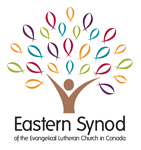December is my favorite month, and Advent is my favorite liturgical season- a time of anticipation and expectation. Images of the church beautifully draped in the shades of blue, contrast from the long season of green.
At home, the daily tradition of Advent candle lighting produces hygge, a concept of coziness, and comfort that warms my soul.
Darkness of the Advent season offers rest and renewal, protection, beauty and mystery.
Maybe the preparation of Christmas, with the sprinkling of gingerbread aroma makes the Advent season festive, musical, and texts filled with expectation and anticipation.
Advent can also be challenging.
The secular merriment contrasts with loss or grief, an empty chair, once warmed by a loved one, traditions interrupted. It can be lonely and jarring to be away from family, to be dealing with relationship challenges, addictions, ongoing racism, systemic homophobia, biphobia and transphobia. Loneliness, aging, health concerns. Climate change with weather extremes flash on the news at alarming rates. The long nights and shorter periods of day light can also be hard.
My favorite Advent Hymn is Rory Cooney’s “Canticle of the Turning,” inspired by the Magnificat, from the Gospel of Luke 1:52-33, about Mary and her longing for liberation, hope, peace and justice.
My heart shall sing of the day you bring
Let the fires of your justice burn
Wipe away all tears
For the dawn draws near
And the world is about to turn!
Advent reminds us that Hope is born into chaos. God came and has come and will come and is coming again. Hope and promise, born into our challenges, into our grief, into our struggles.
Hope comes.
With Christmas just around the corner, we are reminded, the world is about to turn!!
Wishing you deep peace and love this season!!
